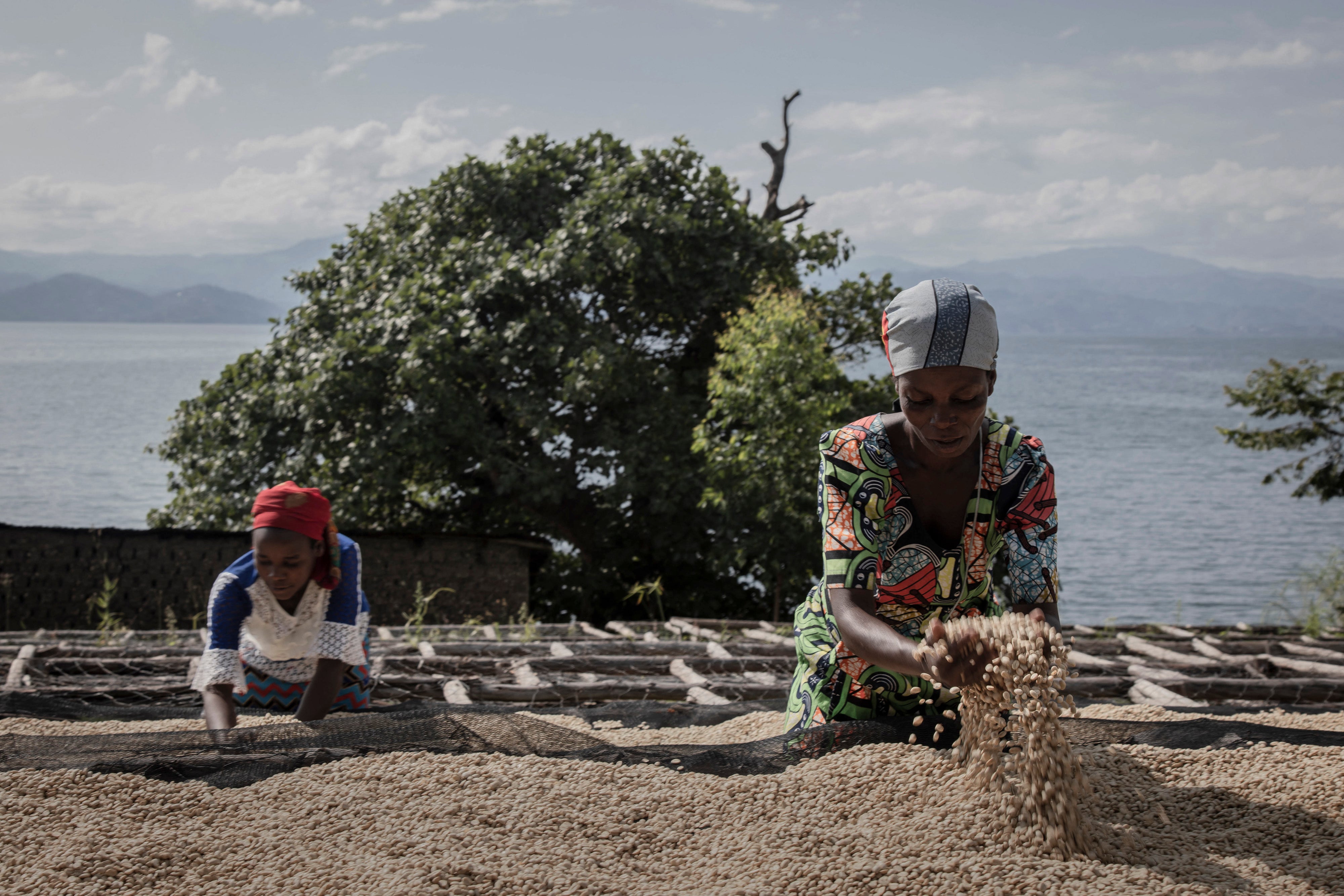Food prices are on the rise – and the global south will be hit hardest
The window of opportunity is closing. The longer we leave it, the more crop diversity we lose, and the harder it will be to cope with climate shocks, price spikes and instability


The war in Ukraine, rising food prices, and the risk of agricultural collapse have ruthlessly exposed the fragility of our global food security.
Nearly half of the world’s food supply depends on just three crops: wheat, maize, and rice – all of which are vulnerable to the climate crisis and conflict. Reliant on such a narrow, precarious food supply, no wonder we are seeing price shocks. If we are to have any hope of preventing future crises, and solving this one, we must do more to diversify our food system.
Even before this war, the climate crisis, a global pandemic, and other conflicts around the world had put agriculture and food security under increasing stress. With every day that the war continues, the danger of a catastrophe grows. Supply bottlenecks and price spikes threaten millions of people and the political stability of entire regions.
While prices are certainly rising in the UK and other industrialised countries, the combination of a failure to develop local food systems and a reliance on imports means that the global south will always be hit hardest by price shocks.
How did we get into this mess? It is time we took a fundamental look at the development of agriculture around the world so we can find a solution that can fix this once and for all.
For decades, many regions in the global south – such as Africa – have tailored their agricultural systems to exports. Rather than self-sufficiency, the agricultural system promoted exporting commodities like cocoa and coffee that prioritised foreign exchange over the development of a robust domestic food market. As long as world market prices for staple foods were low, and those for commodities high, the temptation to follow such a strategy was strong.
But it turned out to have tragic consequences. While it allowed the middle classes in Africa to access cheap food on the world market, it was at the price of widespread poverty, rural hunger, and massive migration to cities.
The development donor community was partly to blame, to be sure. For a long time, it preached that state investment in agricultural extension services was absurd, and pushed governments to withdraw from rural development as part of its structural adjustment programs.
As a result, efforts to develop an independent, productive local agricultural system – and therefore reduce dependence on food imports – failed. This makes the global south particularly vulnerable to changes in the prices of agricultural goods.
Some countries have already begun to limit their exports of grains and other key foodstuffs in order to maintain domestic supplies and limit price increases at home. If this behaviour sets a precedent, it could set in motion a spiral of price increases similar to the food price crisis of 2010-11, at the end of which there will only be losers.
In such a context, it is vital that borders between countries that produce food surpluses and those that depend on food imports remain open. We cannot do without free trade in agricultural products.
But there is a longer-term solution. A way out that can finally end forever the fragility, and inequality, embedded within our food system. The answer is not outlandish or expensive: it’s simply a vibrant local agriculture.
That, however, requires crops that are genetically diverse. Genetic diversity allows farmers to grow crops that match the climatic – and market – conditions they face. But genetic diversity among crop varieties has been falling dramatically. Crop diversity has declined in 80 per cent of the cases where it has been measured, according to academic research covering the last 80 years.
If we really want our food system to be climate-resilient, nutrition-sensitive and productive, we may need to go back to crops that better suit local conditions. That could mean fields of millet and sorghum, for instance, instead of wheat and maize in parts of Africa.
The recent impact of the Ukraine war is just a taste of the challenge we face from the climate crisis. The latest Intergovernmental Panel on Climate Change (IPPC) report revealed how climate change will make around a third of current areas of production unsuitable by the end of the century.
But there is hope. The genetic diversity enshrined in seeds is a gift from nature that plant breeders and farmers can use to breed more climate-resilient varieties. Varieties that are also resistant to new pests and diseases. Which store better, and taste better.
To keep up to speed with all the latest opinions and comment, sign up to our free weekly Voices Dispatches newsletter by clicking here
Crop diversity is how agriculture can adapt to climate change and safeguard the world’s food supply – not only in the global south, but also here in the UK. But, it is deteriorating rapidly and time is running out to save what we can save, before it is lost forever.
We must do more to collect and store in seed banks the gene pool of crops we have left if we are to secure a world heritage that will enable us to survive the climate crisis. Crop diversity underpins a truly sustainable food system, one which prioritises local production to the benefit of consumers and our planet.
But the window of opportunity is closing. The longer we leave it, the more diversity we lose, and the harder it will be to cope with climate shocks, price spikes and instability. We must act now, decisively, to safeguard crop diversity forever.
Stefan Schmitz is the executive director of Crop Trust
Join our commenting forum
Join thought-provoking conversations, follow other Independent readers and see their replies
Comments
Bookmark popover
Removed from bookmarks